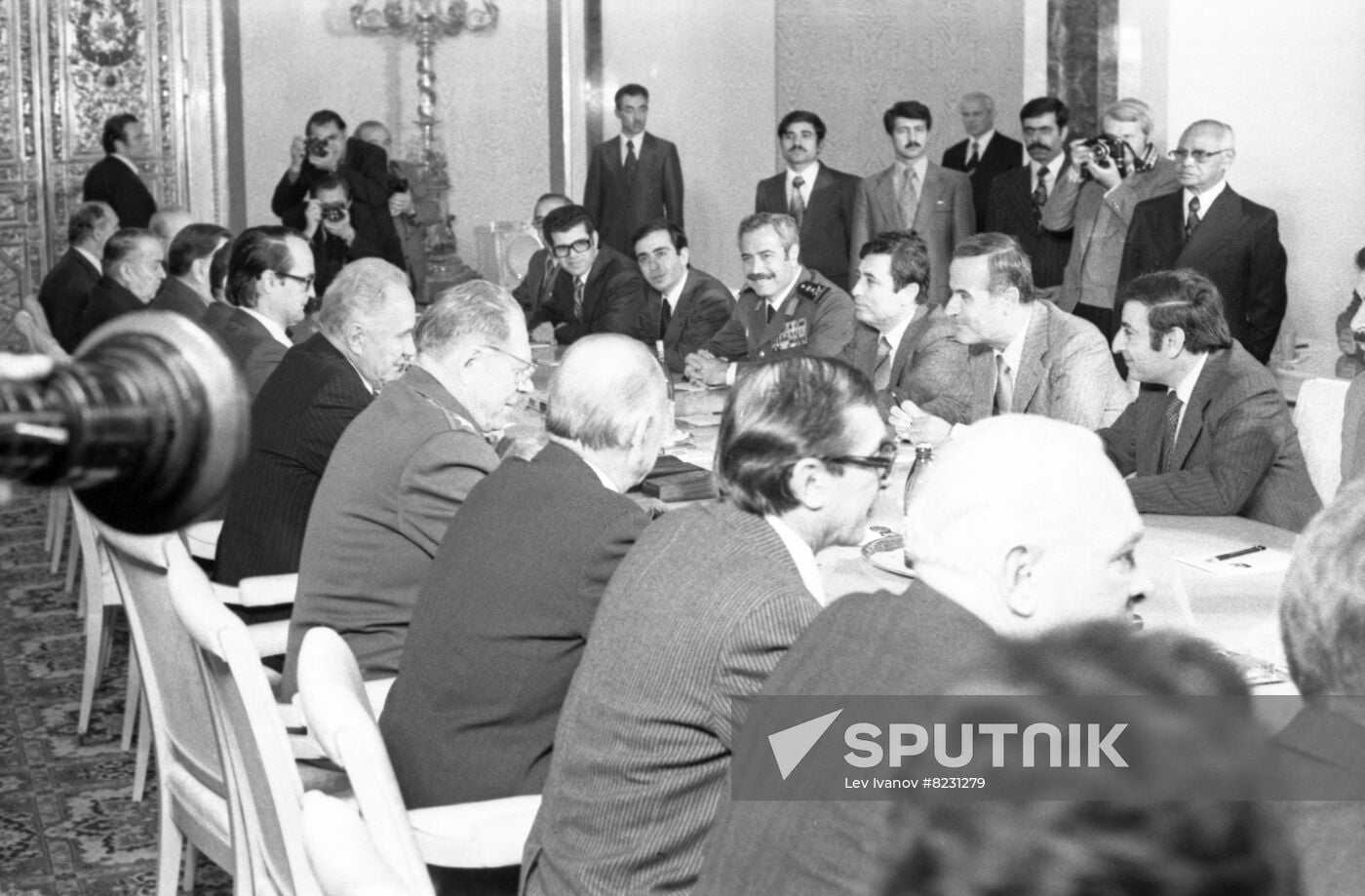Multiple political and media studies have addressed the relationship between them, confirming that it takes various forms and dimensions. Some lean towards the view that the media influences politics, while others take a different approach. The idea of interdependence between them, the difficulty of separation, or certainty in determining mutual influence seems closer to reality. It is considered that the media, in general, is the voice of politics, speaking on its behalf and being its influential tool in different segments of society. One of the recent readings in this field is the book “The Dialectics of Politics and Media Between Dependence and Influence” by the Jordanian diplomat Alaa Al-Zyoud, the media advisor to the embassy in Cairo. He concluded that the media, in its various forms, especially in the modern era, is the most significant and effective tool in shaping public opinion’s trends and positions on various issues. This prompted countries to deal with the media as part of the political communication system, considering it a link with the targeted audience, resulting in an unwritten agreement between the workers in the two fields based on the logic of mutual benefit.
During my journalistic career, I experienced how countries employ the media as a crucial means to send political messages to achieve specific goals. For example, the Arab openness to Egyptian media, where this means was chosen to restore diplomatic relations with Egypt after the decision of the 1987 summit in Amman, allowing each country to restore relations according to its interests and vision. The calls on the Egyptian press for visits to various Arab capitals were abundant, especially those completely absent since the Camp David agreement in 1979. While Iraq was an exception to this boycott due to the war with Iran, it started regular journalistic visits to Baghdad from mid-July 1982. However, these visits were part of Egypt’s support for Iraq.
Damascene Dialogues
It all started with “utilizing the presence of a large journalistic delegation” to cover the proceedings of the General Conference of the Arab Lawyers Union. Being a specialist in Arab affairs, I requested a journalistic interview with Abdul-Halim Khaddam, the Deputy President of Syria. The response came quickly that the Vice President welcomes it but prefers it to be collective, involving all journalists participating in the conference. Among them was Ali Hassan, the current Chairman of the Board of Directors of the Middle East News Agency. At that time, he was one of the distinguished judicial editors responsible for covering the Egyptian Lawyers Syndicate and the Arab Lawyers Union. The meeting was successful in managing a fruitful dialogue with Abdul-Halim Khaddam, which lasted for more than two hours. Most of the time was dedicated to the man discussing Damascus’s positive monitoring of the late President Mohamed Hosni Mubarak’s Arab stances. Khaddam expressed his desire to restore Egypt’s leadership role. He also spoke about the historical Egyptian-Syrian relations, emphasizing their first experience of Arab unity, with a partnership in the wars in 1967 and the October 1973 victory. Specifically, he praised President Mubarak’s ability to keep relations with Israel at their minimum, without any official normalization. The message reached Cairo immediately after the meeting, containing Khaddam’s statements. The scene was repeated in the delegation’s meeting with Mohammed Salman, the Syrian Minister of Information at that time. He praised the broadcast of the series “Rafat Al-Hajjan,” which brought back memories of the conflict between Egypt and Israel. Seizing the opportunity, I asked the minister about reports mentioning a Syrian-Iranian deal allowing Syria to receive millions of dollars in exchange for Syria’s permission. The most important element in the equation was the presence of elements from the Iranian Revolutionary Guard in southern Lebanon. The minister smiled and said, “Can you hide the presence of hundreds or thousands of Iranians without any of the local residents noticing? What do you think about arranging a visit for the delegation to the areas mentioned in the reports to see the truth?” The welcoming response highlighted the importance of this exceptional visit.
On the Presidential Plane
Returning to the delegation’s visit, the Secretary-General of the Arab Lawyers Union met with President Hafez Al-Assad at the end of the conference. He requested easing the suffering of the Egyptian delegation on their return after the difficulty of the journey to Syria. The delegation had arrived by the national carrier’s plane to Amman and then took buses to Damascus due to the suspension of flights between Egypt and Syria. The Khawaja requested a Syrian plane to Amman. President Hafez Al-Assad’s response exceeded expectations. He said, “The presidential plane will transport the Egyptian delegation directly to Cairo, not Amman.” This message, along with the others, was received exceptionally well in Cairo. Diplomatic relations were fully restored between the two countries by the end of December of the same year.
This is my testimony about that visit, where Syrian policy succeeded in utilizing the media correctly, helping to pave the way for the return of relations.

